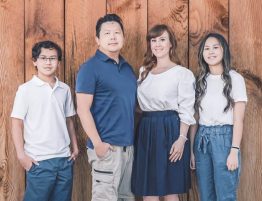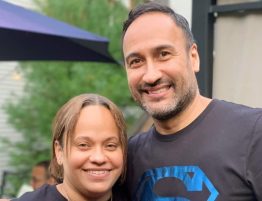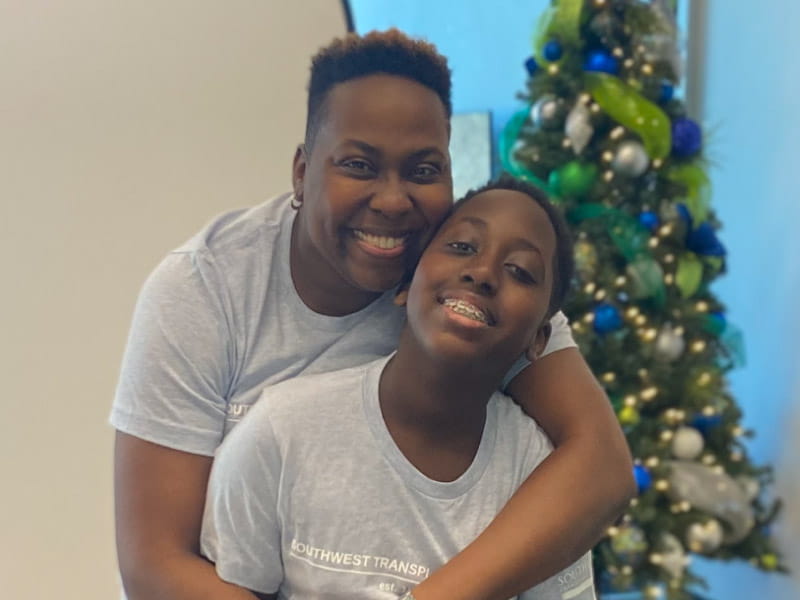
Three days after Brittany Clayborne gave birth to her son, Micah, she couldn’t catch her breath.
The then-26-year-old returned to the Dallas hospital where she’d given birth. Tests showed her heart chambers were enlarged and her heart muscle was weak.
She had peripartum cardiomyopathy. It’s a rare form of heart failure that happens toward the end of pregnancy or in the months just after delivery.
Brittany went home with medications to help her heart heal and work more efficiently. She cared for Micah, and soon returned to work as a supervisor at a major airline.
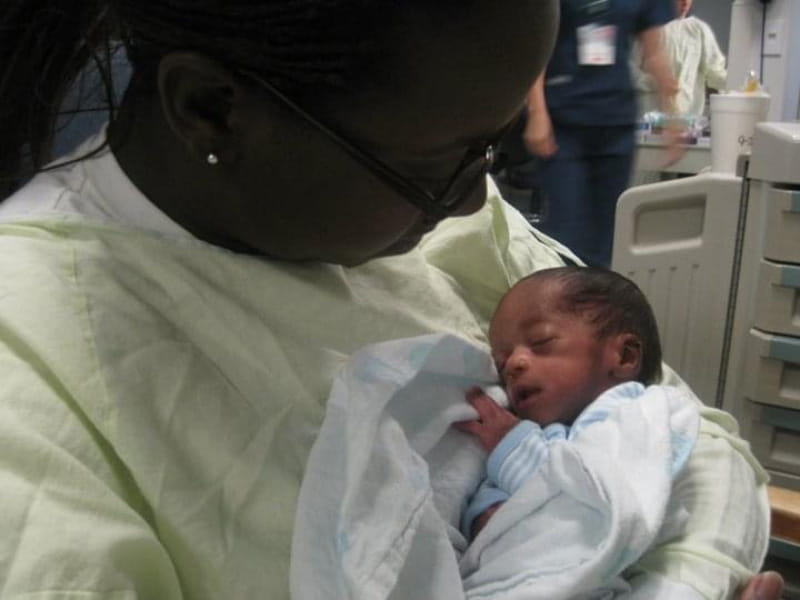
When Micah was 2 years old, Brittany started having dizzy spells. Her heart raced. Scans showed her heart was getting even weaker. Doctors placed in her chest a device called an implantable cardioverter defibrillator, or ICD, to track her heart rhythm and deliver a shock if it detected a dangerously abnormal rhythm.
One day, Brittany was home slicing a cantaloupe when her heart rate skyrocketed. The ICD shocked her. Another day, while driving, she got another shock; her car ended up in a ditch.
Brittany got six shocks over four years. Without the ICD, she could have died.
But with each shock, she thought about loose ends. Were there papers she’d put off signing? Had she said “I love you” to everyone special in her life?
After the sixth shock, and five years after giving birth, it was clear: Brittany needed a heart transplant. Doctors said it was best for her to stay in the hospital as she waited for a match. They hoped her stay would last a month, maybe two.
Brittany moved in to the cardiac intensive care unit. She got IV medication to help her heart pump better. She brought along her guitar and video games. Brittany’s mother, Sheila Bryant, took over caring for Micah.
From her hospital bed, Brittany started a program to get a master’s degree in organizational psychology. Nurses helped Brittany balance medical tests with school ones.
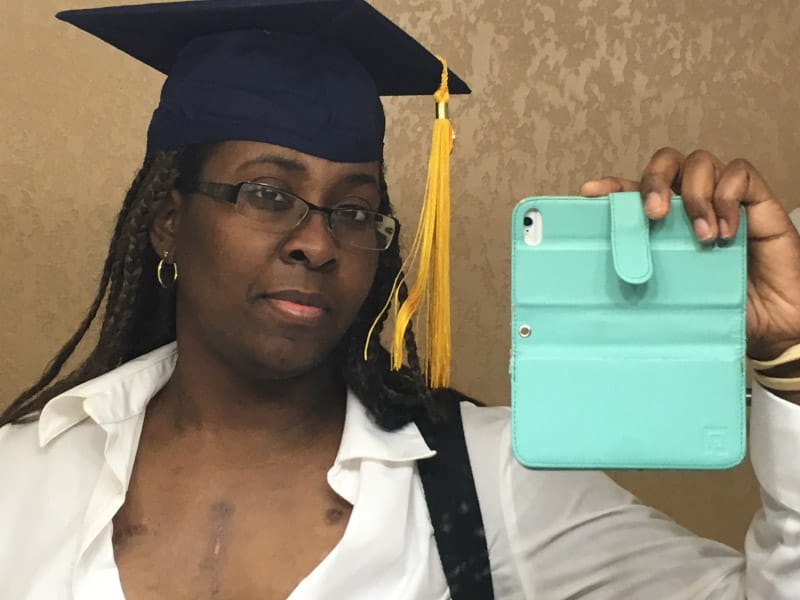
One month passed, then two. Brittany was still on the transplant list. Five-year-old Micah wasn’t allowed in the ICU. Brittany found a way to see him once a week.
Nine months after Brittany was admitted to the hospital, she earned her degree. But there still wasn’t a heart match.
A month before Micah’s sixth birthday, Brittany lay in her hospital bed assembling Power Rangers gift bags for Micah’s party. She called him to say hello.
“You’re going to be there, right, Mommy?” he said.
“Probably not, buddy,” replied Brittany.
“Then I don’t want to have a party,” said Micah.
His words hit Brittany hard. “I’ve got to get out of here,” she told herself. “I’m missing life.” She called her doctors that same night to ask about her options.
One was a left ventricular assist device, or LVAD. It’s a device that’s surgically implanted in the heart and takes over the job of pumping blood to the body. It is often considered a “bridge to transplantation” for people awaiting a donor heart.
“Will that get me out of here and to my son’s party?” she asked.
Maybe, her doctors said.
Two days later, Brittany had the procedure. For the next few weeks, she worked hard at physical therapy. On Micah’s birthday, she was released.
Brittany stopped to get cupcakes and went right to Micah’s school. When he came back from PE, she was in his classroom. The whole class erupted in cheers.
For two years, Brittany did well with her LVAD, even though it came with its share of challenges. Every day, the device had to be plugged in to a battery pack or a wall outlet. Storms made her nervous because she needed a plan to get to the hospital if the power went out.
Micah would wake up hearing the LVAD beep in the middle of the night when its battery was low. He’d rush into Brittany’s room to tell her to change the battery. Brittany was still on the transplant list waiting for a heart match.
“My nightly prayer would be for God to send her the perfect heart,” Sheila said.
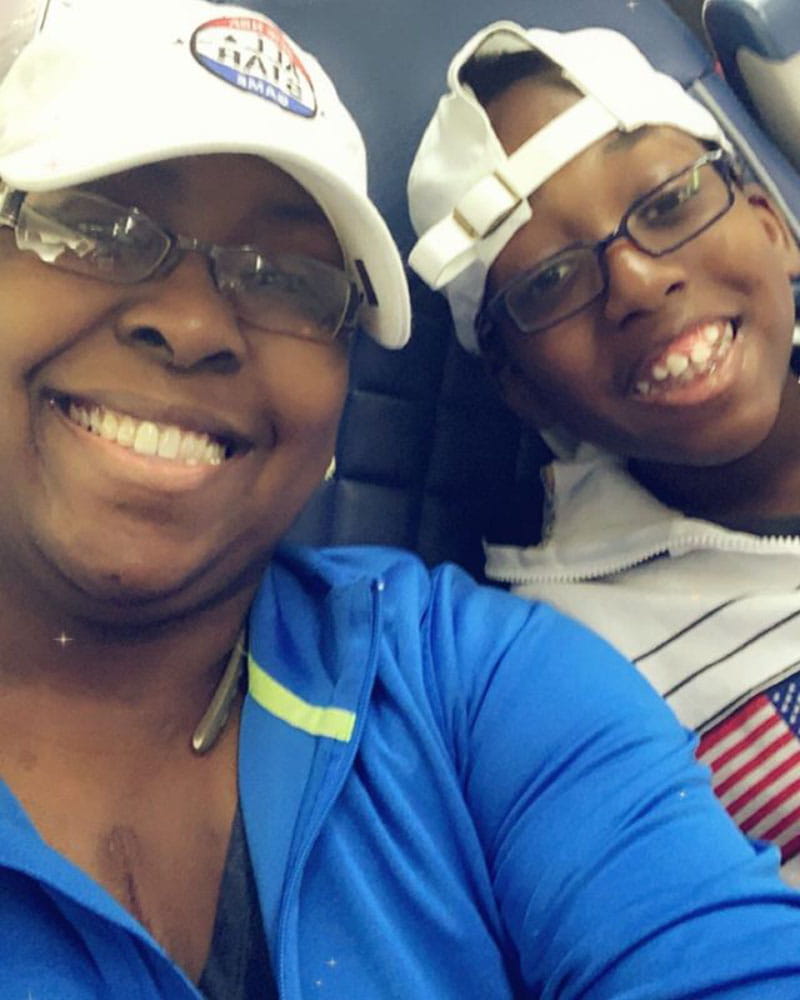
One day, Brittany was at a weekly appointment to manage the thickness of her blood – monitoring that is necessary with an LVAD – when a problem required her to be hospitalized. That day also was her father’s birthday, the first since he’d died from cancer.
“I quit,” Brittany told a friend. “I’m tired of fighting for life. Everyone’s waiting for me to live or die.”
Brittany put pen to paper and wrote a letter to Micah, then 7. She wrote about every event in his life she thought she might miss: birthdays, graduations, his wedding. She wrote letters to her future grandchildren. She asked the hospital chef for steak, shrimp, peach cobbler and ice cream. In her mind, it was her last meal before giving up.
As Brittany chewed her final bite of steak, the phone rang. It was her doctor.
“We have a heart for you,” he said. “It’s a perfect match.”
Brittany’s heart transplant surgery was a success. At the one-year mark, her new heart looked great. Then she got a fever. What she thought was a cold required further testing.
Doctors found lesions in her liver and spleen. She had stage 4 cancer.
“I need the phone number to a really good psychologist,” Brittany told her doctors.
She started chemotherapy right away. She also enrolled in a psychology doctoral program the same day. She had six rounds of chemo and 45 rounds of radiation therapy. When the cancer persisted, she took a trial medication, which worked. Now she’s cancer-free.
“The fact that she’s here with Micah is amazing, miraculous, joyful, hopeful, and more than we could have prayed for or imagined,” Sheila said.
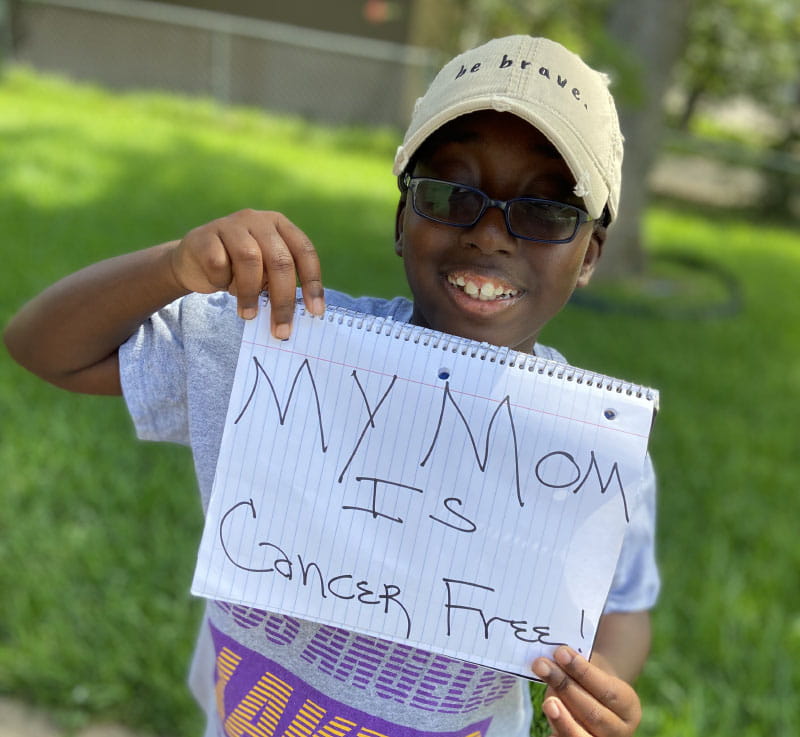
Brittany committed to spreading awareness about heart failure through speaking events and advocacy. She’s the chair of the patient committee for the Heart Failure Society of America and sits on the advisory committee of the National Organization of Rare Diseases.
She also offers therapy to help others heal. Micah started to help others, too. At 10, he founded a nonprofit that sends care packages to the children of people who’ve had a transplant or critical illness.
“I’ve seen him develop a great deal of compassion, empathy and understanding that many adults don’t even have,” Brittany said.
In December, their saga took another turn when 13-year-old Micah came home from school complaining of chest pain.
At 4, he’d undergone tests on his heart. All was fine. Brittany clung to hope that was still the case. She made an appointment with a cardiologist to make sure.
Tests showed he has a severe case of hypertrophic cardiomyopathy. It’s a condition where the heart muscle thickens, making it more difficult for blood to flow in and out of its chambers.
“He’s going to need a heart transplant,” the doctor said.
“But he runs a mile in tennis every day,” Brittany said. “He’s fine.”
“He’s not,” the doctor said. Micah’s heart was functioning at less than a quarter of its capacity. “We don’t understand how he’s walking in here.”
Micah was admitted to the cardiac ICU. Soon after, he got an ICD, like Brittany had. He’s now on the waiting list for a new heart.
Tests showed markers for a rare genetic disorder known as Danon disease. The full name is lysosome-associated membrane protein-2, or LAMP2, deficiency. Brittany is waiting for her genetic test results.
“The world just looks different now,” she said. “Heart failure for me was a very private but winnable battle, not just physically but mentally. But now I have to work through my heart failure and help my 13-year-old navigate it.”
After coming home from the ICU, Micah told Brittany he wanted to make a journal. They designed and professionally printed a custom journal with transplant terms and words of inspiration. Micah wants to give copies to other teens with heart issues and make additional ones for teens with cancer or anxiety.
“He’s trying to make sure that everybody gets seen,” Brittany said.
As they wait for a match, Micah’s thrown himself into another project. An immunocompromised teen he met in the hospital shared that he wanted to attend a professional football game without risking getting sick.
Micah drew up a plan to reserve a private box at sports games for immunocompromised kids, and he wants to find partners to help make it happen.
“I’m overwhelmed by his love for humanity,” Brittany said. “But I’m also really scared for my little boy.”
Stories From the Heart chronicles the inspiring journeys of heart disease and stroke survivors, caregivers and advocates.


